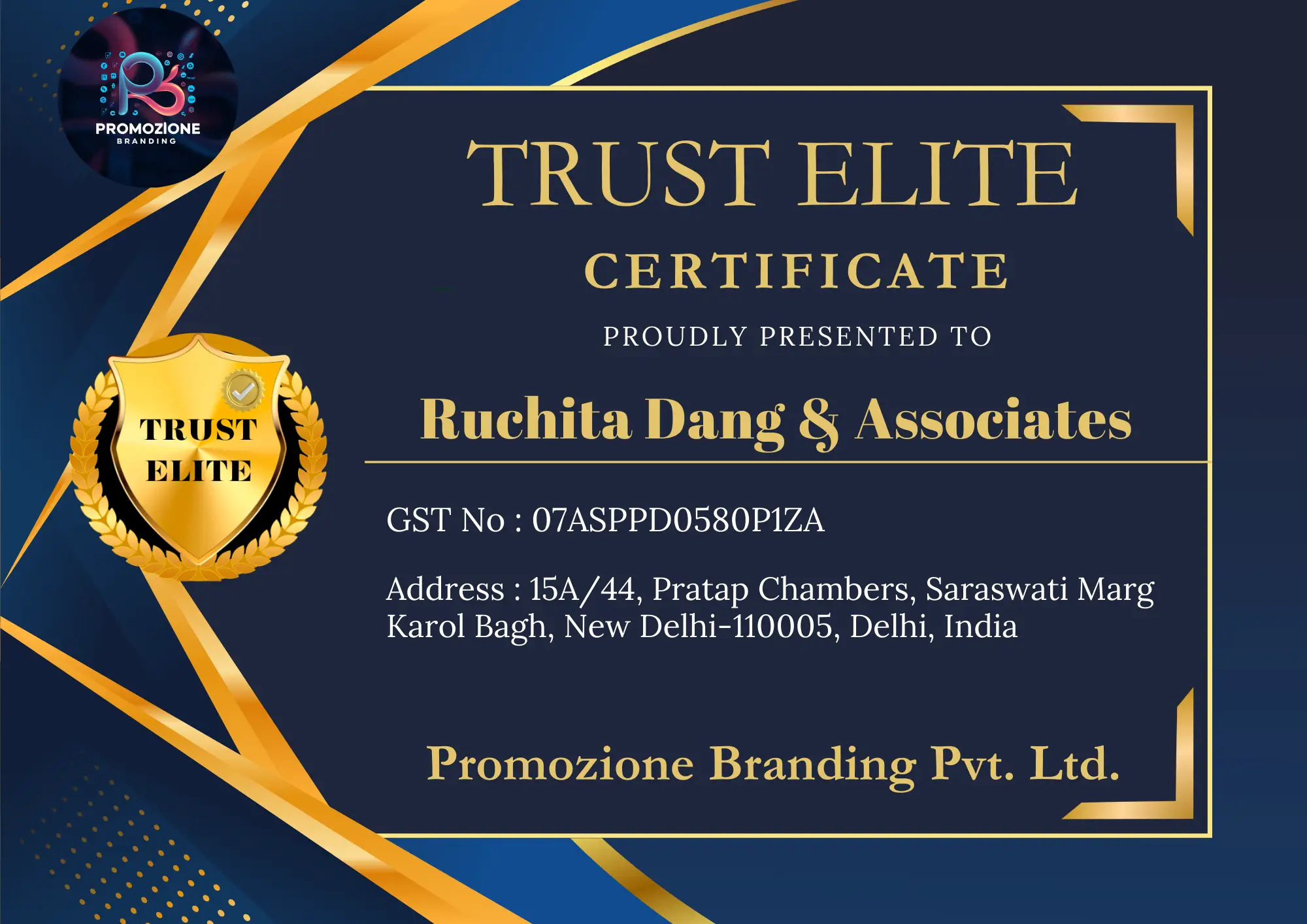Limited Liability Partnership (LLP) Registration in India
Start your business with confidence by registering as a Limited Liability Partnership (LLP) — the perfect blend of flexibility and legal protection. Ruchita Dang & Associates offers complete LLP registration services with expert guidance, hassle-free documentation, and end-to-end compliance support.

What is a Limited Liability Partnership (LLP)?
A Limited Liability Partnership (LLP) is a corporate business structure that combines the advantages of a partnership with the benefits of limited liability. Introduced under the LLP Act, 2008, this model offers a separate legal identity to the business while allowing partners to enjoy limited liability — meaning they are not personally responsible for the debts or obligations of the LLP.
Unlike traditional partnerships, an LLP protects each partner from joint liability and allows for greater operational flexibility, making it an ideal structure for small and medium-sized businesses, consultants, service providers, and professionals.
Key Features of LLP
- Separate Legal Entity – An LLP is distinct from its partners.
- Limited Liability Protection – Partners are liable only up to their contribution.
- No Minimum Capital Requirement – You can start with any amount of capital.
- Flexible Management Structure – Internal operations are governed by the LLP Agreement.
- Easy Compliance – Fewer regulations compared to a private limited company.
- Perpetual Succession – The LLP continues to exist even if partners change.
Submit your Details to get an Instant All-inclusive Quote to your email and a FREE Expert consultation
Have queries? Reach out to
our experts.

Benefits of LLP Registration
Registering an LLP offers multiple business advantages. First, the limited liability feature ensures personal assets of the partners are protected. Secondly, it has lower compliance costs and simpler annual filings than other company types. LLPs are recognized by banks, clients, and investors, helping you establish a credible presence. Additionally, profit-sharing flexibility and tax advantages make LLP a preferred choice for many professionals and startups.
LLP Registration Process
Step 1
Step 2
Step 3
Step 4
Step 5
Step 6
Why Ruchita Dang & Associates
250+ Experts
4.5* Google Rating
24/7 Assistance
Quick and Easy Process
Complete Online Process
Frequently Asked Questions
A Limited Liability Partnership (LLP) refers to a mixed kind of business that has the partnership’s flexibility and company’s limited liability protection at the same time. The Limited Liability Partnership Act of 2008 regulates it, thus making it a perfect choice for start-ups and small business in India.
LLP Registration in India consists of a series of steps that include acquiring a Digital Signature Certificate (DSC), Director Identification Number (DIN), name approvals from the MCA, and submission of incorporation papers through the MCA portal. Professional INR LLP Registration Services will help you to perform the entire process efficiently and in accordance with the law.
Limited liability protection is the foremost advantage, followed by separate legal existence, low compliance obligations, and management flexibility. The use of expert LLP Registration Services ensures that you will be able to reap these benefits without encountering any procedural errors.
You will need to provide the documents such as PAN and Aadhaar of the partners, proof of registered office address, and photographs and utility bills. A professional LLP Registration Consultant can assist you in preparing and submitting all the forms and documents required and ensure that they are done correctly.
Normally, the LLP Registration in India process lasts about 10 to 15 working days, but it can be longer if it depends on the approval of the name and the government’s verification. If you use a LLP Registration Consultant, you will have quicker approvals as well as a smoother registration process.
LLP has no minimum capital requirement to be registered. The partners can agree on any capital amount and start the business. LLP Registration Services help you in the proper structuring of capital contributions.
An expert LLP Registration Consultant takes care of legal correctness, documentation, and compliance with the Ministry of Corporate Affairs standards. They are also of great help in post-registration services like LLP agreement preparation and annual compliance filings.


